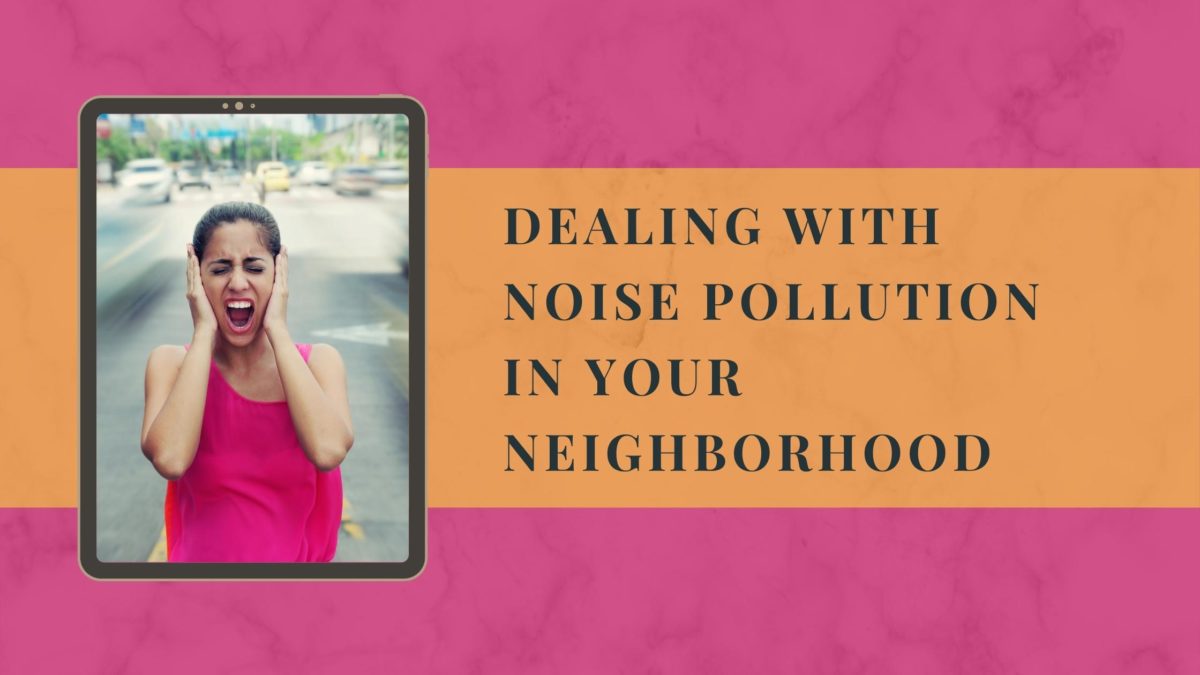
Dealing with Noise Pollution in Your Neighborhood
For just one day, pay attention to the noises of your environment. Underneath the soft birdsong and voices of your neighbors is often a constant hum of traffic or HVAC systems that we’ve become so used to that we barely register the sound anymore. A typical day in an American neighborhood can also include innumerable occurrences of too-loud noise. Beyond simple annoyance, noise pollution can be damaging for your health in a number of ways.
Why noise pollution matters
A 2014 article in the Environmental Health Perspectives journal states that “tens of millions of Americans suffer from a range of adverse health outcomes due to noise exposure, including heart disease and hearing loss.” Other health impacts associated with noise pollution include sleep disruption, diabetes, fatigue, irritability, aggression, speech problems and increased stress. We have also seen links between noise pollution and poor performance at work or in school.
How too loud noise can affect hearing
Our ears were built to tune into a much quieter world. During the millions of years of our evolution, the human ear heard only natural sounds. The loudness of conversation, for instance, is around 60 decibels. Violently loud sounds were probably quite rare. However, in the past two and a half centuries, our modern world has turned up the volume significantly.
As machinery grew commonplace and audio became amplified, our ears have had to withstand much louder sounds. As commonplace as conversation, city traffic is experienced at 80-85 decibels if you are sitting in the car. For reference, the Centers for Disease Control and Prevention (CDC) cites “Noise above 70 dB over a prolonged period of time may start to damage your hearing. Loud noise above 120 dB can cause immediate harm to your ears.”
Noise pollution in urban areas
Most people would guess that urban areas, with a higher density of people and industry, contain many sources of noise pollution. There’s the previously mentioned constant hum of traffic, of course. On top of that, it’s commonplace to walk by, work at or live near busy construction sites, which register at 80-90 decibels on average. If you commute using public transportation, an approaching subway train clocks in at 100 decibels. The beauty and curse of high density living means that you might live near or even above a music venue or loud restaurant.
Noise pollution in rural areas
We might not initially associate noise pollution with rural living, but there are certainly instances in which noise pollution factors into daily life in the country. Though there are less traffic and construction noises, the low density lifestyle may also incorporate everyday sources of too loud noise. If you live in a farming community, there is a good chance that the requisite machinery is quite loud. A working tractor averages 100 decibels of noise. Your acreage might bring a peaceful feeling of openness, but lawns require mowing which can expose you to 90 decibels of too-loud sound.
Recreational activities as sources of noise pollution
In addition to noise pollution in the places we live or work, our hobbies might pile on additional noise pollution. Power boats average 90 decibels while a jetski might reach up to 115 decibels. Snowmobiling, recreational shooting, concert-going, and even sports stadiums can pose dangerous levels of noise.
How you can protect against noise pollution
While it is impossible to escape all types of noise pollution, there are steps you can take to minimize its impact. For one, be aware of the noise you are exposed to. If you are in a too-noisy environment that you can leave, evaluate whether you need to remain there. If your favorite band is playing an extremely loud concert, you don’t have to skip their set. Instead, find a quiet space to give your ears a break for ten minutes. You can also stock up on ear protection like earplugs or noise cancelling headphones. We don’t think twice about protecting ourselves from cold with added layers and gloves, so why wouldn’t we give our hearing that same level of consideration?
Environmentally, you may be able to plant additional trees and foliage around your home to serve as a noise buffer. When possible, close windows as a way to block out extreme noise and to give your ears a break. Decorate with function in mind and invest in heavy curtains to minimize the amount of noise allowed into your home. Don’t add fuel to the fire with your own listening habits. Monitor the volumes of your personal devices and take care to minimize the volume when you can.
Seek help if too-loud noise has impacted your hearing heath
If you feel as though the effects of noise pollution or too-loud noise has already impacted your hearing, make an appointment for a hearing consultation today. Our well-trained team of hearing health professionals are on hand to determine whether hearing loss is present and can help guide you on a path to more successful hearing.
